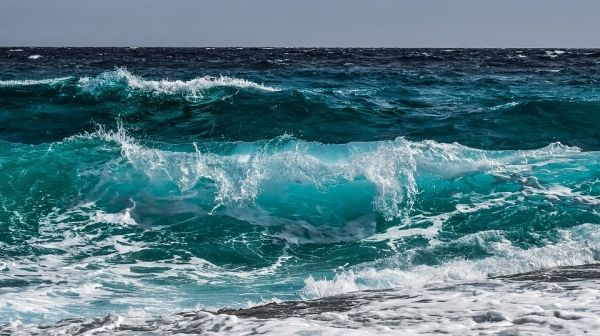he oceans are losing oxygen. Numerous studies based on direct measurements in recent years have shown this. Since water can dissolve less gas as temperatures rise, these results were not surprising. In addition to global warming, factors such as eutrophication of the coastal seas also contribute to the ongoing deoxygenation. Will the oceans become completely oxygen-depleted at some point in the future if global warming continues? Such anoxic phases have actually occurred several times in the Earth's history, combined with major mass extinction events. They were also accompanied by high carbon dioxide concentrations in the atmosphere and high global temperatures.
Today, scientists of the GEOMAR Helmholtz Centre for Ocean Research Kiel published model simulations in the international journal Nature Communications on the development of the oxygen content of the oceans up to the year 8000. In their scenario, they assume that a large part of the fossil resources will be burnt, that emissions will continue to rise until the end of the century and then decrease to zero by the year 2300. In the model, the planet heats up by a further 6 degrees, and temperatures remain at this high level until the end of the simulation.
The surprising result concerns the oxygen content of the ocean: After a further decrease over several hundred years, the oxygen inventory of the ocean rises again and even reaches a higher level than before industrialization in just under 4000 years. At first glance, it seems paradoxical that despite the expected further expansion of the already existing oxygen minimum zones in the world's oceans, the model yields an unexpected increase in oxygen as global temperatures rise.
Read more at: Helmholtz Centre for Ocean Research Kiel (Geomar)
Photo credit: dimitrisvetsikas1969 via Pixabay


